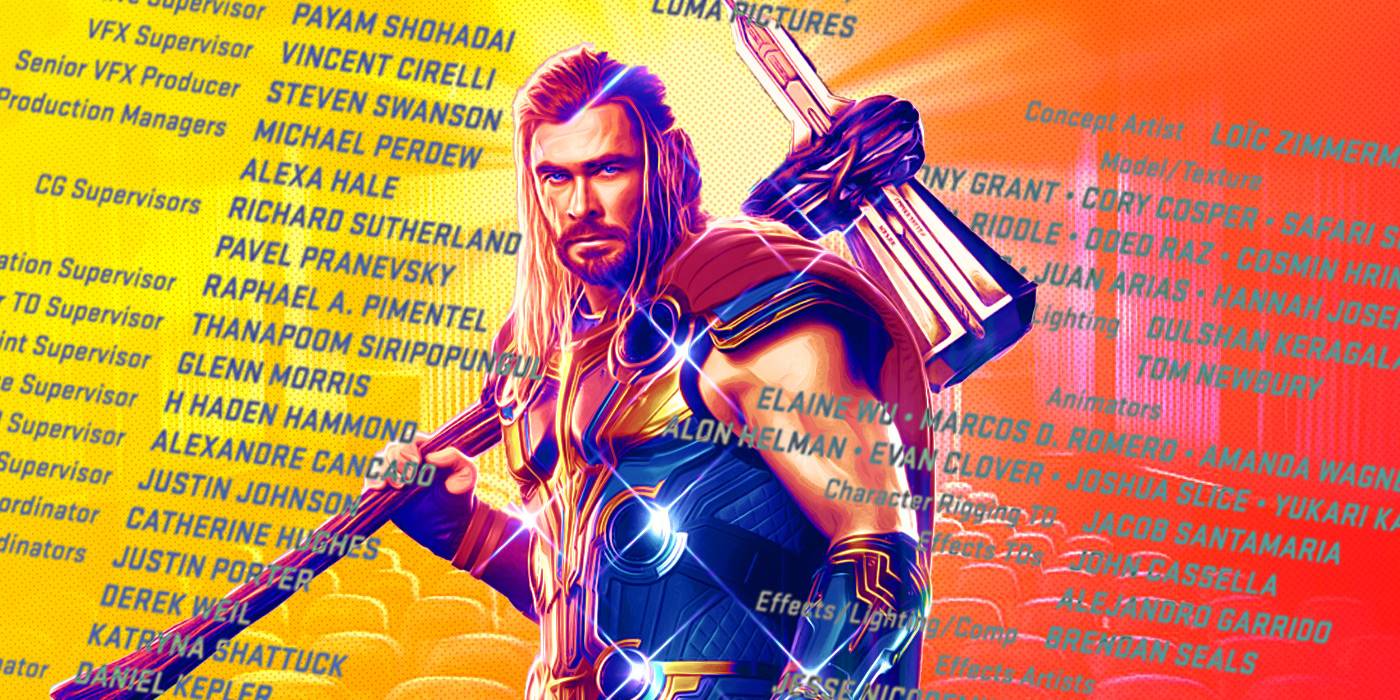
Thor (Chris Hemsworth) is off on adventures with the Guardians of the Galaxy but still hasn’t really found his place in the world after Avengers: Endgame saw his revelation that he wasn’t fit to be King of Asgard, despite being told he was born to do so for his entire life. (That honor has now been bestowed upon Tessa Thompson’s Valkyrie, who also has a fun presence in the film.) It’s clear that after losing pretty much everyone he loved most, the God of Thunder is now hesitant to get too close to anyone else lest he be hurt yet again. After some sage advice from Star-Lord (Chris Pratt), which essentially boils down to the classic “‘tis better to have loved and lost than never to have loved at all” line, he runs into his ex-girlfriend Jane Foster (Natalie Portman, in her best Marvel performance to date) and sees he isn’t the only Thor in New Asgard anymore.
Of course, the movie is about more than just self-exploration. This is Marvel, so there’s also a villain to defeat, and in this film that comes in the form of Gorr the God Butcher (Christian Bale). The character is a fitting foe for the heroes in this story because, like them, he is also dealing with loss and how to move forward from it. It’s a case of the heroes’ journey of growth helping them in their quest to the bad guy rather than the personal stakes just being a side thing, which is always a great way to combine characterization with the plot.
Whether or not Love and Thunder tops 2017’s Thor: Ragnarok is hard to say. Ragnarok had stronger action, but Love and Thunder does improve upon the previous installment in at least one respect: there’s more time spent fleshing out the stakes and emotional weight of the story. While the movie is certainly hopeful and positive in tone throughout, it isn’t afraid to get dark in parts and there’s a major plot element that has been completely kept out of the marketing that may surprise audiences in this regard. As someone who has read the comic run this film is based on it didn’t surprise me, but I was concerned about how it would fit in with the established tone of the project and I’m happy to say it was handled maturely but without wallowing in the darkness of it all.
That’s not to say the humor in the movie is lacking, far from it. Love and Thunder manages to be simultaneously sillier and more serious than Ragnarok, which is quite the feat. However, it’s all handled well and there isn’t the tonal whiplash some people fear when comedies include darker elements.
Love and Thunder is a bit of a “play the hits” kind of movie, keeping a similar tone to Ragnarok and being a more self-contained story than most Marvel projects as of late. However, this also makes the film refreshing in a sense, as this is the first Marvel Cinematic Universe sequel in a long time that is easily accessible to new viewers (though longtime fans will be plenty rewarded as well). Everything one needs to know in order to understand the story is explained in the film, and there’s no key connection to any of Marvel’s Disney+ series a la Doctor Strange in the Multiverse of Madness’s close ties to WandaVision. (Yes, this does mean Thor franchise favorite Loki is not in this installment, but while he is missed the cast and crew have thankfully managed to make a movie good enough that the Tom Hiddleston character isn’t needed to be a saving grace like the first two movies.)
Thor: Love and Thunder has moved release dates a lot over the course of the pandemic, but it ended up in the perfect spot. More than any other Marvel movie since the first Guardians of the Galaxy, this screams summer blockbuster through and through and is a welcome addition to the MCU after the onslaught of melodrama the franchise has seen as of late.
SCORE: 8.5/10
As ComingSoon’s review policy explains, a score of 8 equates to “Great.” While there are a few minor issues, this score means that the art succeeds at its goal and leaves a memorable impact.